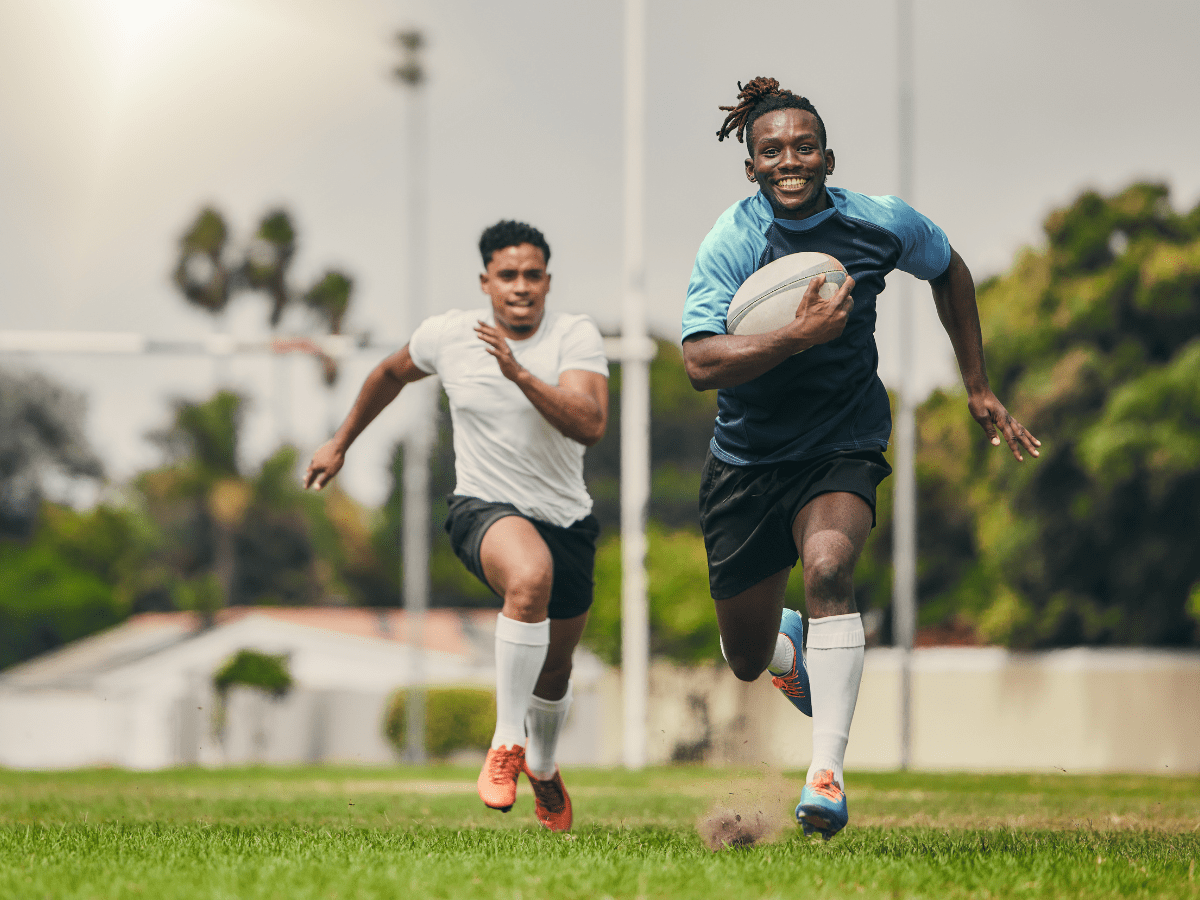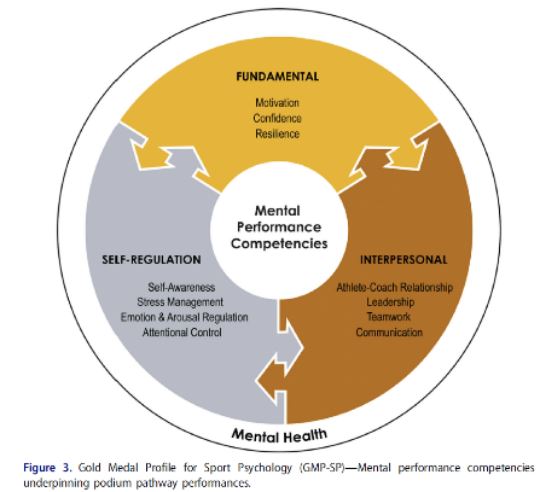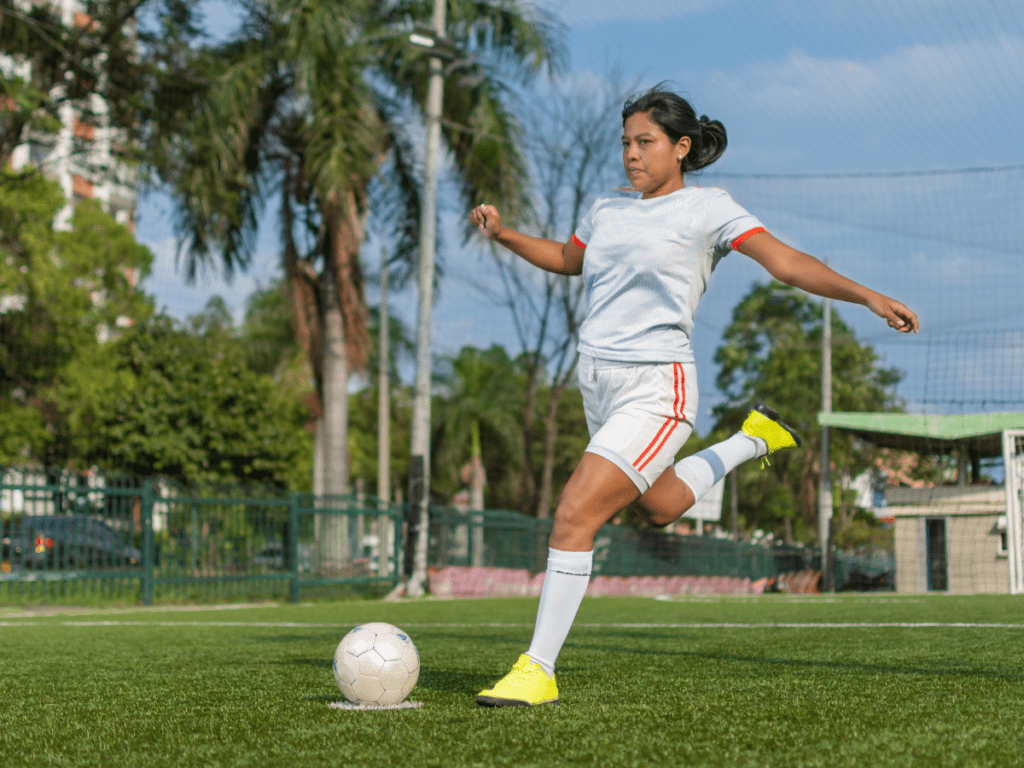
Overview
To achieve excellence, athletes must dedicate themselves not only to honing their physical fitness, but also to mastering the intricacies of their psychological skills. While extensive research has probed into the psychological attributes, states, and competencies of elite athletes, there persists a notable dearth of comprehensive conceptual models or frameworks that effectively bring together the most relevant skills, which limits their application by those who engage with athletes on a daily basis.

The Gold Medal Profile for Sport Psychology (GMP-SP) was developed based on the most recent research and provides valuable guidance for practitioners and professionals working closely with athletes, enhancing their capacity to nurture peak performance.
Key findings
The condensed version of the GMP-SP focuses on 11 mental performance competencies grouped under three components: 1) fundamental competencies (motivation, confidence, resilience), 2) self-regulation competencies (self-awareness, stress management, emotion and arousal regulation, attentional control), ad 3) interpersonal competencies (athlete-coach relationship, leadership, teamwork, communication). Mental health is also included as an overarching concept that influences both mental and athletic performance. The framework uses 3 main colors, analog to the gold, silver, and bronze podium finishes.
- Fundamental competencies:
- Motivation: An individual’s reasons or motives for behaving in a specific manner, either to achieve or avoid certain outcomes (Ryan & Deci, 2017).
- Confidence: The belief or degree of certainty that athletes possess about their capability to succeed in sport (Machida et al., 2017).
- Resilience: A dynamic process involving the ability to maintain regular (healthy) functioning amidst various challenges and to effectively rebound after facing adversity through the use of facilitative resources (Fletcher & Sarkar, 2016).
- Self-regulation competencies:
- Self-awareness: The result of engaging in introspection and thoughtful contemplation to understand one’s inner states (Ravizza & Fifer, 2015).
- Stress management: A dynamic process involving the assessment of stressors, one’s perception and interpretation of these stressors, and the utilization of strategies to manage the psychological and physiological responses to these stressors (Smith, 1986).
- Emotion and arousal regulation: The process of identifying, modulating, and maintaining specific emotion and physiological arousal states that are most conducive to one’s optimal performance (Ruiz et al., 2017).
- Attentional control: The ability to purposefully focus one’s attention on a stimulus to carry out a specific task (Boutcher, 2002).
- Interpersonal competencies:
- Athlete-coach relationship: The ability to establish and maintain positive and trustworthy coach-athlete relationships (Jowett, 2007).
- Leadership: The capacity to influence or guide others towards shared goals and that can be enacted by both coaches and athletes (Duguay et al., 2019).
- Teamwork: A dynamic process involving contributions from team members to efficiently execute independent and interdependent behaviors required to maximize a team’s likelihood of achieving its objectives (McEwan & Beauchamp, 2014).
- Communication: The exchange of information, thoughts, or messages using verbal and non-verbal means (Collins & Durand-Bush, 2019).
- Mental health: A state reflecting one’s psychological, social, and emotional well-being (Westerhof & Keyes, 2010). When high levels of stress come together with insufficient support, limited help-seeking, and inadequate recovery, athletes’ mental health can be compromised and lead to mental illness (Gouttebarge et al., 2019; Reardon et al., 2019). Prioritizing athlete’s mental health is of great importance given its multifaceted impact on areas such as learning, performance, interpersonal relationships, and physical health (Durand-Bush & Van Slingerland, 2021; Reardon et al., 2019).

Recommendations for members involved in high-performance sport
- The GMP-SP can be used to assess, periodize, and implement mental skills training programs in high performance sport.
- Prioritize fundamental competencies with support teams. Team up with your support network to focus on enhancing fundamental competencies such as motivation, confidence, and resilience. Work together to identify specific areas where improvement is needed and create a targeted plan to develop these essential skills.
- Personalize self-regulation skills with experts. Collaborate with mental performance consultants to tailor self-regulation skills to your sport’s unique challenges. Develop individualized strategies and techniques for managing stress, emotions, arousal, and attention effectively. Practice these skills during training sessions and competitions and remain aware of changes so you can adapt accordingly.
- Cultivate interpersonal skills within your sport environment. Encourage open communication, trust, and teamwork. Organize team-building activities and workshops that promote positive relationships and reinforce the importance of a supportive and safe sport culture for all athletes.
Conclusion
The GMP-SP offers a comprehensive and user-friendly framework that can be used to support athletes throughout their sporting careers. It is particularly important for athletes to achieve maximum mental performance and mental health as this enables them to improve their odds of succeeding in high-performance sports.